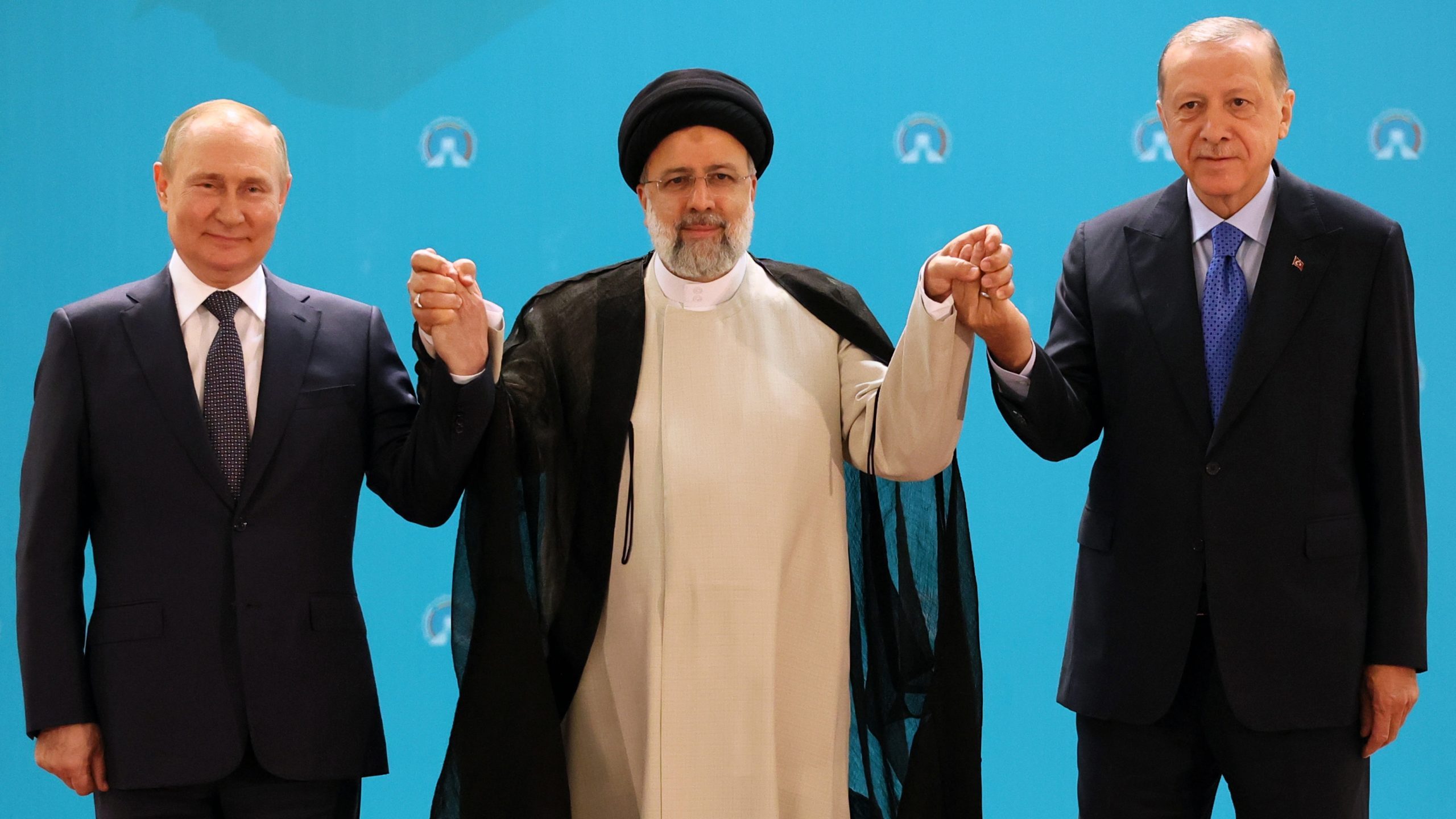Despite their apparent unity, the presidents of Turkey, Russia and Iran, who met for a summit in Tehran on Tuesday, are still at odds. One of the most pressing issues that separate them is the planned Turkish operation in Northern Syria against the Kurdish-led Syrian Democratic Forces (SDF), which Turkey sees as the Syrian branch of its own Kurdish terrorist group, the PKK and a vital threat to its security. Ankara also hopes that by pushing the SDF away from its borders, it could operate a safe zone in Northern Syria to repatriate its many Syrian refugees. And in fact, the statement published at the conclusion of the summit affirmed “constant coordination (between the three capitals) to uproot all terrorist groups, institutions and entities.”
Yet, according to the pro-government Syria Times, the Leader of the Islamic Revolution in Iran, Imam Seyyed Ali Khamenei, stressed during a meeting with Turkish President Recep Erdogan that preserving Syria’s territorial integrity is very important, asserting that any military attack on northern Syria would benefit terrorists and would be to the detriment of Syria, Turkey and the region. Khamenei stressed that Iran considers the security of Turkey’s borders as its own.
Russia also prefers that Turkey abstains from military intervention. According to the pan-Arab Asharq al-Awsat, Russia is hoping that Damascus and Ankara can improve their relations and strengthen their security cooperation instead. Russia puts on the mediation table the revival of the Sochi Agreement on the east of the Euphrates in preparation for implementing the Adana Agreement. The latter was signed by Ankara and Damascus in July 1998, establishing security cooperation between the two parties and allowing the Turkish army to pursue the Kurdistan Workers Party (PKK) deep into Syrian territory.
Nevertheless, the Turkish head of State reaffirmed his attachment to the military operation in Syria. On Wednesday, he called on U.S. forces to leave areas east of the Euphrates River in northern Syria, according to the opposition website Syria TV. “The issue of the new (military) operation in northern Syria will remain on our agenda until our national security concerns are no longer,” he told reporters on board the plane as he returned from the summit in Tehran. He added that the “terrorist organization” (YPG/PKK) believes that it can deceive the Turkish army by raising the flag of the Syrian regime in areas of northern Syria.
Mekdad in Tehran
On the sidelines of the trilateral summit, Syria’s Foreign minister Faisal al-Mekdad also visited Tehran, according to the Syria Times. During a joint press conference with his Iranian counterpart, he stated that any Turkish aggression on Syrian territories and the establishment of the so-called “safe zone” would destabilize peace and security in the region. “We reject the Turkification policies and the Turkish interference in Syria’s internal affairs, and all illegal foreign forces on the Syrian territories have to leave,” he added.
According to the official state agency SANA, Mekdad also met the advisor of the Leader of the Islamic Revolution in Iran, Dr. Ali Akber Velayati, to discuss bilateral relations and issues of common interest. The latter affirmed that Syria is the most essential link in the axis of resistance and in the defending just issues in the region and around the world, stressing that Iran will never hesitate to provide full support to Syria in various fields.
Mekdad also met with Iranian First Vice President Mohammad Mokhber. They discussed bilateral relations between Syria and Iran and the means to enhance them to serve the interests of the two friendly countries and peoples, especially when it comes to trade and economic cooperation.
The U.S. and Israel react
The opposition website Baladi News reported that John Kirby, the coordinator of the National Security Council for Strategic Communications in the White House, said Russian President Vladimir Putin’s visit to Iran is evidence of his isolation and the inability of his military system to meet the needs of the war.
For his part, Chairman of the Foreign Affairs and Security Committee in the Israeli Knesset, Ram Ben Barak, said that Israel fears the Russian-Iranian rapprochement will hinder its military operations in Syria. Barak said in a radio interview that Tel Aviv sees the rapprochement between Tehran and Moscow as a response to U.S. President Joe Biden’s recent trip to the region and to Israel’s stand with Ukraine in the war. Barak said Israel does not hide its concern that rapprochement between the two countries would give Tehran legitimacy and strengthen its regional position.


